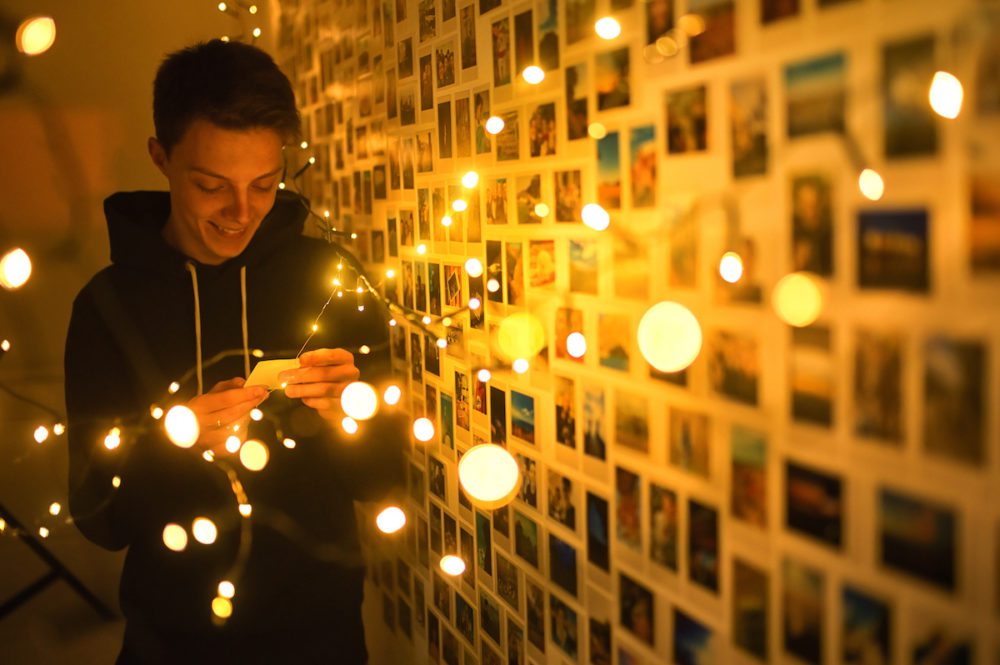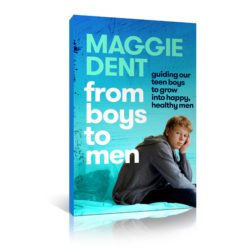Newsletter Articles, Posts for Parents, Raising Adolescents
Leaning in with light for our tweens and teens

Navigating the huge transformation from being a child to an adult has never been more challenging or more difficult. Even before the pandemic, more of our young people were struggling with mental health issues, anxiety, intentional self-harm and depression than ever before.
Ever since I stepped into a classroom 44 years ago, I have been passionate about supporting our emerging adults to navigate all of the changes that are happening to them, often invisibly, so that they can land safely in their 20s as unscarred as possible. Joseph Campbell, the mystic and philosopher, called this the hero’s journey because it is a metaphorical journey of loss, challenge, growth and renewal.
As with any major transformation journey – leaving home, getting married, becoming a parent – there are certain steps that tend to occur.
Every adolescent is unique and every journey into adulthood is different, however, there will be experiences that challenge them and bring them to their knees.
If we keep in mind that their brain architecture is having some major overhauls and renovations, which can actually make it harder for them to think logically and rationally, we – the grown-ups in their lives – need to know that at any point we can help them or hinder them to get back on their feet, and to keep moving forward.
I have been noticing lately that those of my professional colleagues who are working with students in schools have been sharing the same messages of deep concern. Many children in late primary and adolescence, are experiencing significant harm due to online activities. Michelle Mitchell in a recent post on her Facebook page wrote:
I’ve been listening to the horrific online experiences of tweens and teens today – bad stuff that kids should never have to endure. Stuff that doesn’t build resilience but damages it. It really makes me wonder where that behaviour is being learnt and how we can do better.
Who am I?
Two of the fundamental biological drivers of adolescence is the search for identity and a hunger to belong with others of a similar age.
For many of our tweens and teens it can be difficult to work out who they are in a world that is very different to the one their parents grew up in.
As I wrote in a blog a while ago, I have become increasingly concerned for today’s digital natives, especially those under 18. How can they truly discover themselves in amongst the noise, the 24/7 negative news cycles, the insidious pressure from idealised and often sexualised images and videos, the plastic search for notoriety and fame – at any cost? How can they do this amidst the selfies, the filters and the unquenchable thirst for endless connectivity, regardless of whether it is positive, negative, painful or destructive. On top of that our kids who have phones are being marinated in age-inappropriate content from violent videos, endless gaming that involves killing, the dark side of social media and disgusting pornography, often stumbled on accidentally. What a depressing background for raising our kids to have a healthy sense of self with good character.
The second biological drive is about belonging and genuine connectedness, particularly with others of a similar age and maturity. When friendships used to exist only in real time, it was possibly much easier for our tweens and teens to navigate the nuances of friendship. Some of the significant shifts in our culture over the last 20 years have been increased competitiveness in every area of life. Parents tell me they feel like raising children and parenting is a form of competition. Our little ones begin being assessed and tested well before they even start school and the amount of testing that happens in schools is beyond ridiculous. Increased competitiveness in early childhood means there will be increased competitiveness for our tweens and teens, rather than a focus on nurturing connectedness and belonging.
I feel that the pandemic has created a fractured world in many ways and our young are feeling this deeply.
Not only that, following the climate conference in Glasgow many are losing hope for the future of the world. Feeling disconnected, like no one cares, and feeling unheard and misunderstood have always been common cries from young people on the bumpy ride to adulthood. It seems that feeling insignificant, invisible, unworthy, powerless and that they don’t matter for many of our young people, can become overwhelming. When this happens, without enough support, life can seem hopeless and dark.
Bring light and unconditional support into the lives of our tweens and teens.
They all need genuine care, support and reassurance, from as many grown-ups in their families and communities as possible. Given that it is quite normal for adolescents to pull back from their parents as a normal part of maturation and individuation – parents still can play an enormous role in being the safe base they were when their children were little.

We can all shine a light into the darkness
The research shows conclusively of the importance of significant safe, adult allies who aren’t parents – the people I call lighthouses. Think aunts, uncles, grandparents, coaches, a friend’s parents, neighbours, grandparents, teachers, family friends or community members. It takes only one adult who can hold the light in a young person’s life to make a significant difference to the life outcomes for that young person. The most important things that lighthouses bring are unconditional acceptance, unconditional positive regard (regardless of any perceived sense of failure on the young person’s part), no judgement, and no unheeded advice or lectures.
Essentially, lighthouses lean in with compassion and act as a safe base and place to regroup, recover, replenish and grow.
As Michelle Mitchell, again, wrote:
Many children bury themselves in shame when they come unstuck online. They may be concerned about getting into BIG trouble, being accused of doing something wrong, or not being fully understood by the adults in their world.
I want our kids to know that no matter how they arrived at an unsafe place, there is always safe people to turn to. There is always a recovery plan.
I hope we (as a society) never lose compassion.
Our mental health services, especially for our young people, are hopelessly inadequate and out of the reach of many. Waiting for months to see a mental health professional when you are really struggling is not good enough. However, we cannot wait any longer because lives are being lost.
Our world needs more ‘lighthouses’ who can lean in with empathy and compassion, who can bring hope and who can offer to shine a light into any darkness and challenge that our tweens and teens may be experiencing.
Can you help?
Sometimes our tweens and teens mask their inner struggles. Sometimes they have had their trust broken before and can no longer reach out seeking help. Sometimes they think it’s their fault that things have become difficult because they have made some poor decisions. Sometimes they have never experienced having a grown-up as a safe base.
Imagine that every young person needs a lighthouse.
Imagine you could give this message in whatever way you can to a young person in your life, even one who seems to be travelling well.
Letter from a lighthouse…

Download this image as a jpeg or PDF
Dear young person,
I can remember being your age and finding life a bit tricky at times. Our world has become a little less kind, more unpredictable, more chaotic and in many ways less caring. To be honest, it must seem a lot darker for many young people.
I want to offer myself as a safe base should you ever need one. I will lean in for you when you need some support and that support will be non-judgemental and full of compassion with no lectures or unheeded advice. I will be a lighthouse for you, shining a light into the darkness and I will be a positive, reliable presence for you.
Side-by-side we can find a way to overcome obstacles and challenges. In good times, we can do fun stuff together that may include ice cream.
From your lighthouse
PS My contact details are attached.
If you are looking for some guidance on how to be an awesome lighthouse, consider Hugh van Cuylenburg’s wonderful book, The Resilience Project: Finding happiness through gratitude, empathy and mindfulness. Also, please check out my e-book Taking the High Road as it will help you to understand some of the unique challenges of being a tween or teen today.
Collectively, let’s lean in with compassion and hold our young people with tenderness as they navigate the hero’s journey to adulthood in a chaotic and often confusing, unkind world.
Further support for teens/tweens:
Please check out this useful article from ReachOut.com on 6 ways to get help for your mental health
Also we have a list of support services and helplines for teens that may be useful.
For more resources
For more resources to support the adolescents in your life, check out Maggie’s downloadable bundle of audio tracks, ebooks and infographics for tweens and teens, just $20, Your Kit Bag for a Very Bumpy Ride: Useful stuff for adolescents.
And for those of you who may want to seek more understanding about tween and teen boys, check out Maggie’s bestselling 2020 book, From Boys to Men: Guiding our teen boys to grow into happy, healthy men.
Image credit: ©️ by Laurentiu Iordache/ Adobe Stock





